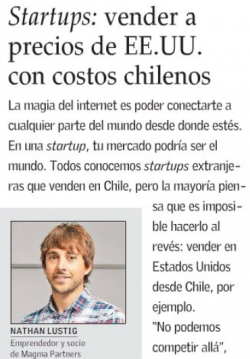Note: A version of this post originally appeared in spanish in the Chilean daily El Mercurio with the title De la economía de los músculos a la economía de la mente.
Michael Bloomberg used his commencement address at the University of Michigan’s to tell graduates a stark truth: “For the first time in human history, the majority of people in the developed world are being asked to make a living with their minds, rather than their muscles.”
He continued:
For 3,000 years, humankind had an economy based on farming: Till the soil, plant the seed, harvest the crop. It was hard to do, but fairly easy to learn. Then, for 300 years, we had an economy based on industry: Mold the parts, turn the crank, assemble the product. This was hard to do, but also fairly easy to learn.
Now, we have an economy based on information: Acquire the knowledge, apply the analytics and use your creativity. This is hard to do and hard to learn, and even once you’ve mastered it, you have to start learning all over again, pretty much every day.



